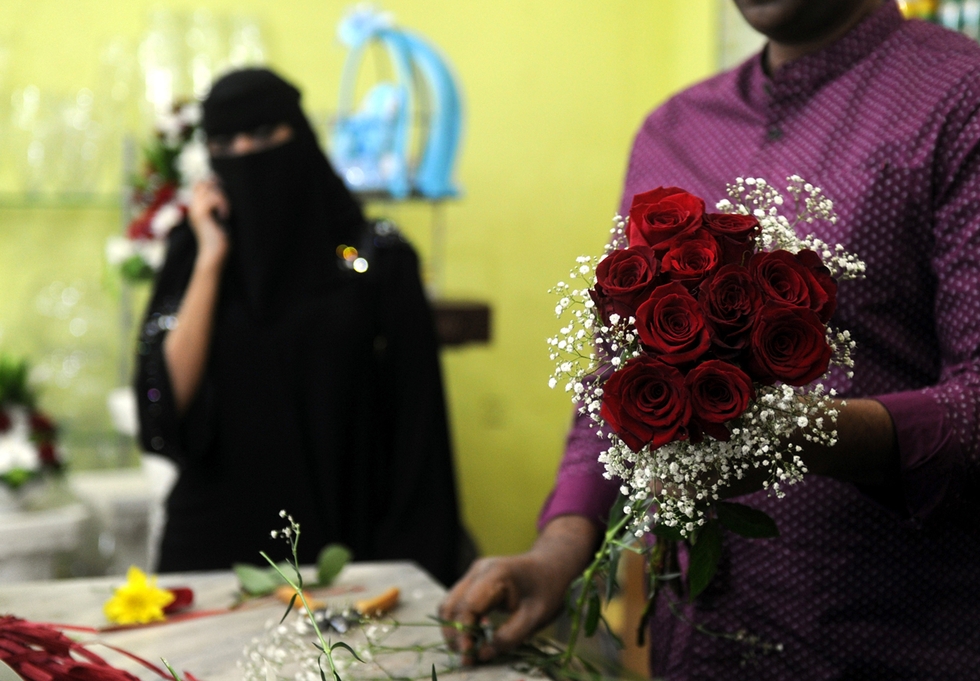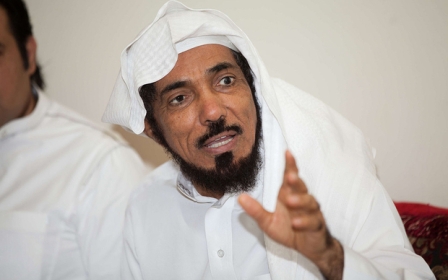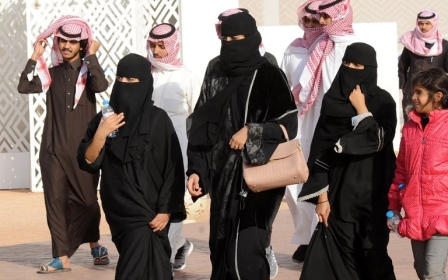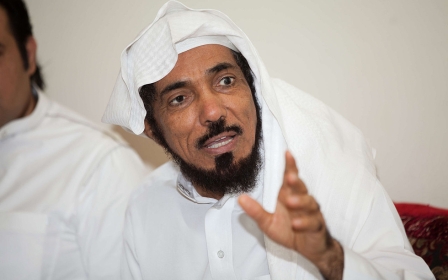Haram no more: Valentine's Day deemed a 'positive social event' by senior Saudi cleric

A prominent Saudi cleric on Wednesday endorsed Valentine's Day, long forbidden in the ultra-conservative kingdom, calling it a "positive social event" that is not linked to religion.
The comment from Ahmed Qassim al-Ghamdi, former chief of the religious police in Mecca, comes as 32-year-old Crown Prince Mohammed bin Salman pursues a far-reaching liberalisation drive that has upended years of conservative tradition.
"It is a positive social event and congratulating people for it is not against sharia [law]," Ghamdi told Saudi-owned Al-Arabiya television.
"It is an act of kindness to share greetings on Western national and social holidays, including Valentine's Day, exchange red roses with others, as long as it is towards peaceful people who do not share animosity or are being at war with Muslims."
Such comments from the Saudi clerical establishment would be inconceivable around two years ago, when the religious police wielded unbridled powers and were notorious for enforcing sex segregation.
In recent years, Saudi Arabia launched a series of reforms, including gradually diminishing the religious police's powers to arrest citizens.
Prince Mohammed, who has vowed to return the country to "moderate Islam," has further cut back the political role of hardline clerics in a historic reordering of the Saudi state.
On Wednesday, florists openly sold red roses and Valentine's Day memorabilia in cities such as Jeddah without any trouble from the religious police, previously notorious for disrupting such celebrations.
Their declining presence has been met with relief by some of the country's youth, but it has also sparked concern over a possible backlash from arch-conservatives.
But opposition to the prince's reforms has been muted - at least publicly - after his crackdown on dissent, including arrests of prominent clerics with millions of followers on social media.
Earlier this week, another senior Saudi cleric said the country's women should not have to wear the loose-fitting abaya robe to shroud their bodies in public - in the latest sign of a liberalisation drive.
"More than 90 percent of pious Muslim women in the Muslim world do not wear abayas," said Sheikh Abdullah al-Mutlaq, a member of the Council of Senior Scholars - the kingdom's highest religious body.
"So we should not force people to wear abayas," he said on a television programme broadcast on Friday.
Saudi Arabia, which has some of the world's tightest restrictions on women, requires them to wear the garment by law.
The government has not said whether it will change the law, but this is the first such comment from a senior religious figure.
In 2016, a prominent Saudi cleric, Sheikh Salman al-Ouda, said homosexuality should not be criminalised.
“Even though homosexuality is considered a sin in all the Semitic holy books, it does not require any punishment in this world," al-Ouda said in an interview with the Swedish Sydsvenskan newspaper, adding that homosexuals would be punished "after death".
"One of the fundamentals of Islam is man's freedom to act as he wants," he added.
However Al-Ouda is one of the clerics who was arrested last year in the crackdown under Mohammed bin Salman.
He was hospitalised last month after going on hunger strike in protest at being held in solitary confinement for several months, Amnesty International reported.
New MEE newsletter: Jerusalem Dispatch
Sign up to get the latest insights and analysis on Israel-Palestine, alongside Turkey Unpacked and other MEE newsletters
Middle East Eye delivers independent and unrivalled coverage and analysis of the Middle East, North Africa and beyond. To learn more about republishing this content and the associated fees, please fill out this form. More about MEE can be found here.




